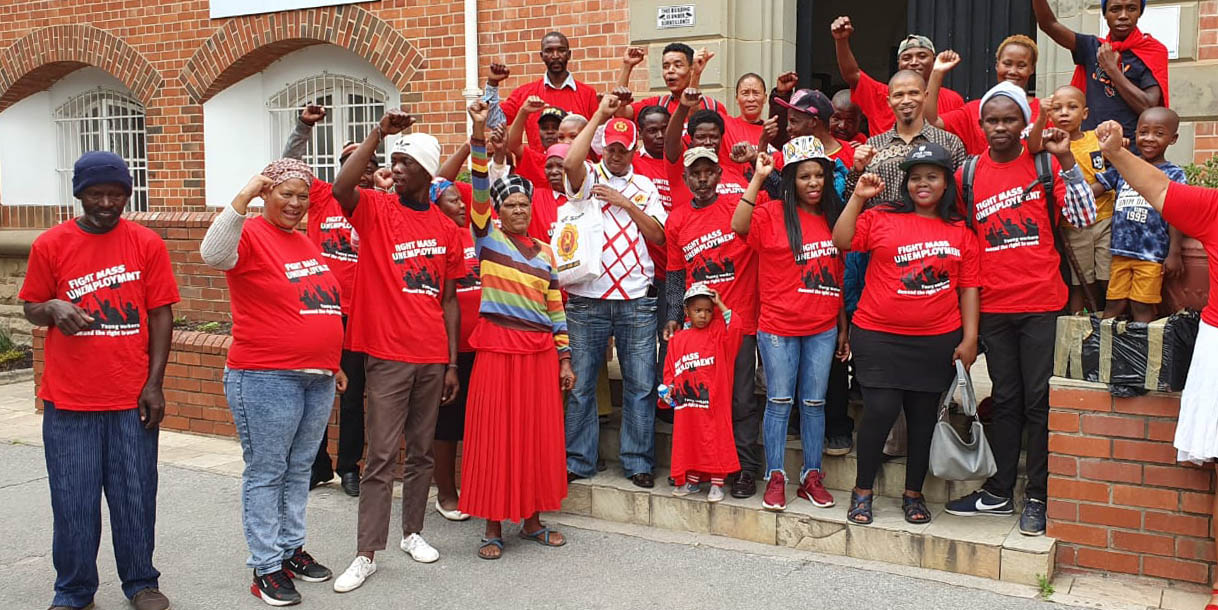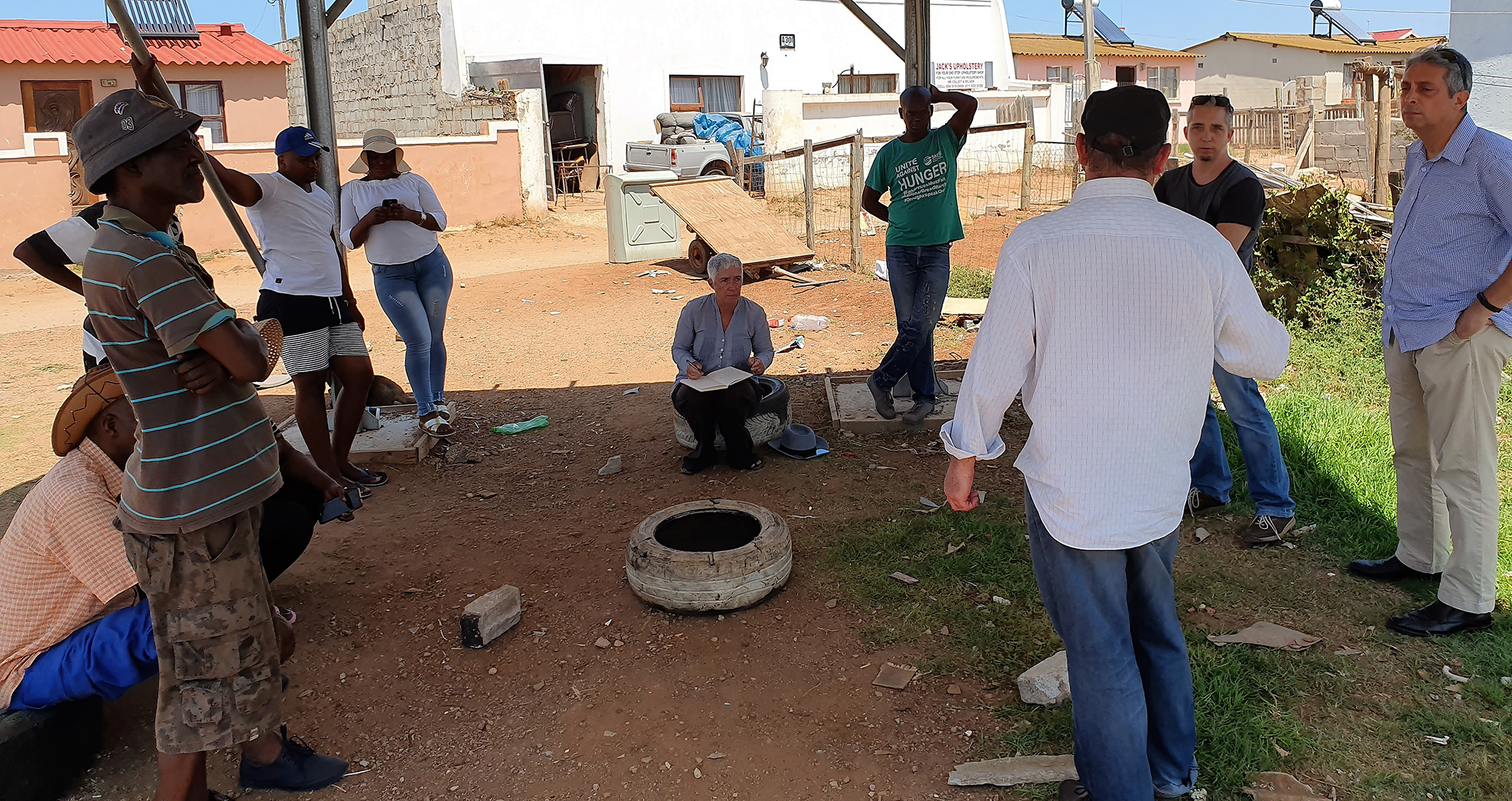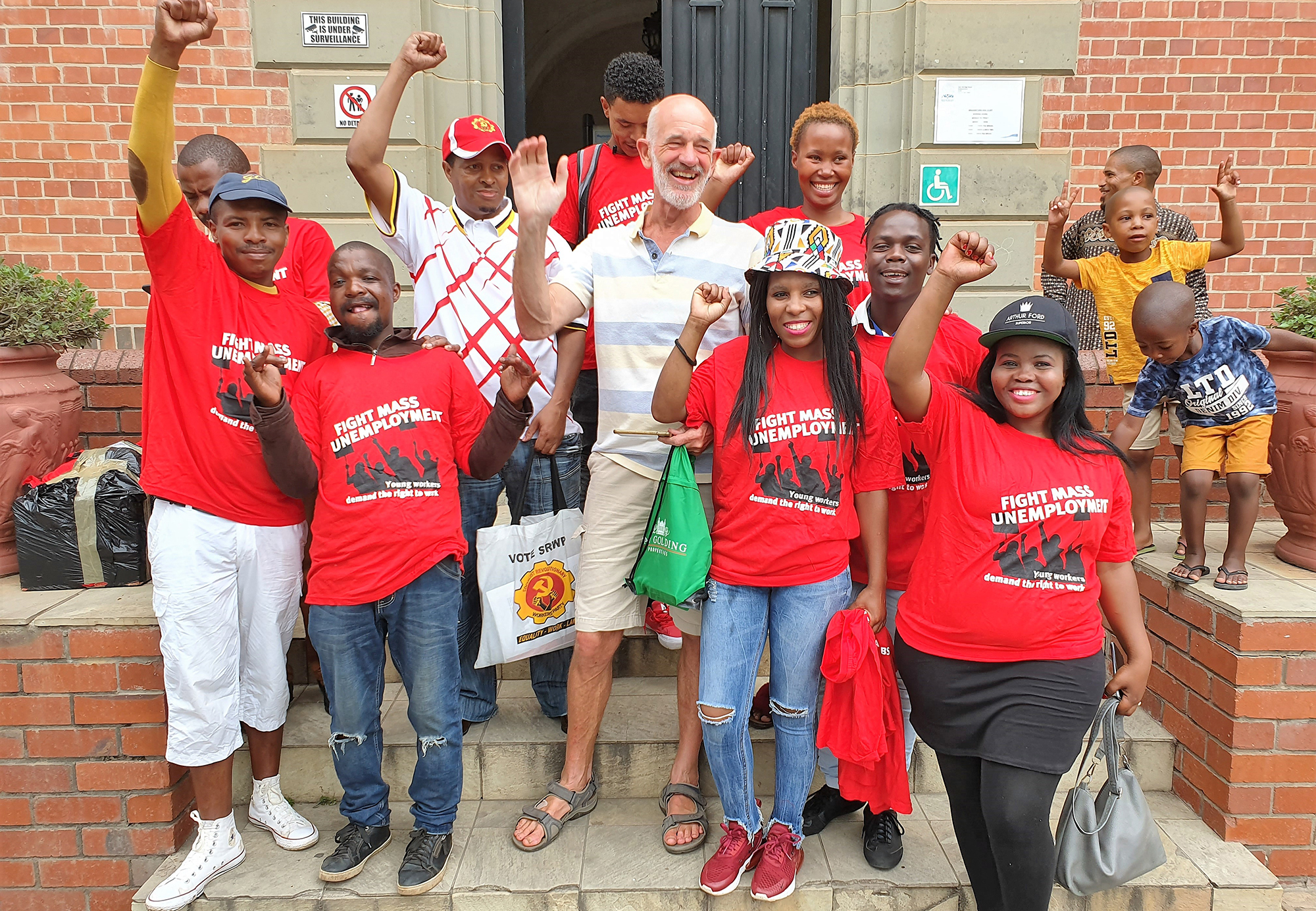In his June 2019 State of the Nation Address, President Cyril Ramaphosa presented a Chinese-inspired futuristic vision of 21st-century South African “smart cities”. The speech generated much criticism among those who felt this was a pipe dream, and that there were more urgent needs to repair and maintain the broken basic infrastructures of water, sanitation, energy, public transport, schools, hospitals, and so on.
Eskom’s ongoing meltdown and the dire state of SOEs and other public entities devastated by State Capture, indicated that state institutions throughout the country were on life support. Silicon Valley visions of smart cities and cutting-edge technologies seemed out of touch, a distraction from the mammoth task of fixing broken infrastructures and public institutions.
Drawing on the concept of “broken world thinking”, the IT scholar Steven J Jackson also criticises this global obsession with newfangled technologies coming out of high tech design laboratories. This private-sector driven fetishisation of innovation is taking place at a time when neoliberal governments are neglecting, and sometimes selling off, public infrastructures and utilities.
Whereas the privatisation of public utilities is indeed a problem in many parts of the world, in South Africa the more serious problem is the failure of the state to properly manage the outsourcing of public projects and services to private firms. There appears to be insufficient capacity to monitor outsourced state projects and this has led to a culture of tenderpreneurship and the kinds of crises we see in Eskom and SOEs as well as the breakdown of municipal infrastructure and services throughout the country.
According to the journalist Sue Segar, the collapse of water and sanitation infrastructure has happened in hundreds of municipalities. For instance, about 80% of the country’s 825 municipal sewage treatment works are currently broken and dysfunctional. Similarly, Dr Gideon Groenewald, a water engineer and borehole expert with Gift of the Givers, told me that he drives more than 8,000km a month across the country seeking to find solutions for towns that have run out of water due to a combination of drought and broken water systems.
Why, then, is the water and sanitation crisis not taken more seriously as a matter of national political concern? Could it be because in South Africa, political and economic elites typically do not suffer the effects of broken water and sanitation infrastructure? For the middle classes in the wealthier cities such as Cape Town and Johannesburg, the ongoing water and sanitation crises in many parts of the country are barely noticed. Yet, when load shedding impacts upon them, it miraculously morphs into a national crisis that is accorded top priority by government.
It would seem that infrastructures are typically in the background and invisible - until they break down. For instance, with the recent loss of internet access, many South Africans learnt about the vulnerability of undersea cables to seismic activity and turbulent ocean currents. Prior to this temporary internet breakdown, there was no need to know anything about these unseen, underwater cables.
The same could be said about the everyday infrastructures that we rely upon for our water, sanitation and energy needs. For the middle classes in the affluent suburbs, electricity, water and sewerage usually works seamlessly, without any need to pay attention to how any of these infrastructures actually work. Should the street lights go off, or the refuse not be collected, a phone call or email to the local councillor or ratepayers' association is usually enough to get the problem solved.
The same cannot be said about the experiences of the poor, who typically have to endure constantly breaking basic infrastructure, usually with very slow and ineffective responses from local authorities.
It was for the above reasons that the Social Justice Coalition (SJC) was established in 2008 in an informal settlement called RR Section in Khayelitsha. This rights-based social movement sought to render visible to political and economic elites the daily realities of infrastructural breakdown. The SJC sought to make the crisis of broken sanitation infrastructure in Cape Town’s informal settlements politically legible by means of social audit reports that systematically documented the state of disrepair and dysfunctionality of toilets and sewerage infrastructure. The organisation also lobbied, pressured, blamed and shamed the City of Cape Town into funding a janitor programme to monitor and repair this infrastructure.
While SJC has had many successes, its focus has largely been limited to rolling out and fixing toilets and sewerage pipes, omitting other vital infrastructures concerned with drainage, stormwater management and so on.
As the University of Cape Town’s Future Water Institute researchers Kirsty Carden and Amber Abrams note, even with access to toilets and sewerage infrastructure, residents in many informal settlements face serious health hazards because of poor or non-existent drainage infrastructure that results in stagnant pools of contaminated grey water that children play in, and often end up with severe cases of diarrhoea.
Another dimension of infrastructure that most Capetonians seemed to have been oblivious to is water supply. For instance, prior to the onset of the “Day Zero” crisis, most Capetonians, including myself, had no idea where the city’s key dams were located. Like the middle classes elsewhere in the world, all we have to do is turn on the tap for potable water to flow. When it comes to sanitation, we simply flush the toilet and our waste is washed away, out of sight and out of mind, flowing seamlessly through underground pipes to sewage plants and then out to the sea. Day Zero changed all of this, and many ordinary citizens learnt about technical matters relating to dams, sewerage systems, desalination plants, underground water and aquifers.
Yet, once the crisis seemed to be over, water and its infrastructures once again receded into the background. So, what does all of this tell us about possibilities for a politics of infrastructure in South Africa?
 Supporters of the Unemployed Peoples’ Movement (UPM) celebrating their court victory outside the Grahamstown High Court, 14 January 2020. (Photo: supplied)
Supporters of the Unemployed Peoples’ Movement (UPM) celebrating their court victory outside the Grahamstown High Court, 14 January 2020. (Photo: supplied)
If infrastructure is invisible in middle-class suburbs because it works relatively smoothly, this is certainly not the case in poor and working-class neighbourhoods where infrastructure is typically broken and very much on peoples’ minds. Nowhere is this more evident than in South Africa’s many informal settlements and townships. While the long-term realities of absent or broken water and sewerage infrastructures periodically catalyse service delivery protests, in Makhanda (formerly Grahamstown) in the Eastern Cape it has been on residents’ minds for many years precisely because of infrastructural breakdown.
As recent articles in Daily Maverick have noted, this crisis triggered an unprecedented legal challenge to the local authorities by the Unemployed People’s Movement (UPM), together with some middle-class support from the Grahamstown Residents Association (GRA), the university, private schools and local business. Through this litigation, these activists and concerned citizens have managed to bring these broken infrastructures in Makhanda into public visibility.
On 14 January 2020, the Makhanda High Court ordered the Makana Municipal Council to be dissolved because of its failure to provide services to residents. This groundbreaking ruling followed years of frustration with the municipality’s inability to provide sustainable water, sewerage, electricity and refuse collection services. In 2014, the municipality had been placed under administration, but by 2019 it had still not implemented the financial recovery plan.
The 2019 case brought by Ayanda Kota and the Unemployed People’s Movement relied upon meticulous written and photographic documentation of broken sewerage and water infrastructure by local residents such as the GRA’s Tim Bull. The judgment noted that the local authority did not challenge the UPM’s damning facts on the state of municipal collapse, and found that the municipality had violated the Constitution by mismanaging the provision of services. The ruling ordered the dissolution of the council, the appointment of an administrator to run Makhanda and the surrounding towns, and fresh elections in three months. According to Jordan Griffiths, writing in Daily Maverick, this could result in further court rulings ordering the dissolution of other dysfunctional municipalities, thereby enabling citizens to demand more responsive and service-delivery oriented local government.
One of the symptoms of the current neoliberal era is the privatisation of public utilities, the emergence of public-private partnerships in service delivery, and the downsizing of the state sector. These policies have, in many parts of the world, contributed to the weakening, and breakdown, of public infrastructures upon which the poor and working class are particularly reliant.
In the case of South Africa, however, the problem of infrastructure breakdown can be attributed to the state’s incapacity to monitor and manage service delivery at the municipal level, rather than being due to the privatisation of state utilities assets. The consequences of this are abundantly evident in cities and towns, including Port Elizabeth, Makhanda, Queenstown and QwaQwa. This has resulted in health-threatening water shortages, sewage spills and failures to collect refuse.
While the court ruling in Makhanda offers a glimpse of hope, the state’s incapacity to provide such services and maintain infrastructure, or to manage the outsourcing of such services, undermines prospects of repairing these broken systems. As long as this incapacity persists, municipalities will continue to be severely compromised.
 KwaZakhele’s Saltuba co-operative members meet under the shade of the solar panel whose electricity they plan to sell to the Nelson Mandela Bay Municipality. (Photo: supplied)
KwaZakhele’s Saltuba co-operative members meet under the shade of the solar panel whose electricity they plan to sell to the Nelson Mandela Bay Municipality. (Photo: supplied)
After attending the court case in Makhanda, I drove with a local activist to Nelson Mandela Bay. During the journey, he told me about his dismissal from the municipality a few years earlier as a result of his attempts to challenge what he alleged was systemic corruption, patronage and financial mismanagement. Such accounts by whistleblowers are widespread throughout the country, and can produce a deep sense of despair. However, my visit to a community project in KwaZakhele township later that day gave me cause to be cautiously optimistic.
As part of the Transition Township research project of the Nelson Mandela University (NMU), a group of KwaZakhele residents established the KwaZakhele Development Agency, and are currently implementing a pilot that involves the establishment of a neighbourhood co-operative which engages in renewable energy production and a sustainable gardening project.
This project is situated on one of the 120 unused township plots, known as “gap-taps”, because residents used to collect water from communal taps there before they got taps in their houses. The pilot plot is between Sali and Tubali streets in KwaZakhele, hence the co-op is named “Saltuba”. If the pilot is successful, the aim is to extend the project to other gap-taps – if each gap-tap installed a 50 kW system, this would generate approximately 80,000 kWh per gap-tap or 9,600000 kWh per annum for the township as a whole.
At current prices, this would generate over R15-million per annum in revenue, with the solar PV panels guaranteed to produce for at least 25 years. The political rationale of this intervention is to use existing street and neighbourhood committees as the building blocks upon which to assert local ownership of the means of energy and food production for working class residents – rather than treating them as beneficiaries or consumers. The project also aims to recycle waste, use rooftop rain and grey water to grow vegetables, and to transform this unused land into public space for sociality, communal kitchens, vegetable stalls and recreation facilities.
One of the founders of this project, the Nelson Mandela University sociologist Professor Janet Cherry, said this project directly challenges the widespread skepticism about co-ops, which are seen to have mostly failed. She also noted that the KwaZakhele co-op members, rather than confronting local government, aimed to develop neighbourhood control over the means of energy and food production on these small plots of urban land (the “gap-taps”). During the two hours of highly technical discussion with the co-op members, it became clear that one of the main problems was devising an institutional mechanism whereby the municipality could buy the electricity generated by the co-op’s solar panels.
I left the project thinking that, rather than bemoaning the failures of a city that Crispian Oliver claims was “stolen” by corrupt politicians, this local co-operative has sought to create something on its own. They have refused to wait for the patronage machine of politicians. Although the project has experienced a number of technical, organisational and funding problems, it represents an innovative attempt to challenge conventional forms of state-driven development. The co-op members also seem to be less interested in the spectacular politics of the barricades; instead, they have focused forms of “slow activism” that seek to build the technical, social and political skills and capacities required for locally driven sustainable energy and food production. This is to be achieved by reviving “struggle” structures such as the street committee rather than relying on new techno-fixes, the bureaucratic state machine or donor-driven NGOs.
While many South Africans seem to despair at the entrenched nature of corruption and bad governance, the Saltuba co-operative has embarked on a creative socio-technical experiment that challenges conventional models of service delivery. Like the campaigns of the Unemployed Peoples Movement in Makhanda, this activist experiment offers a glimpse into innovative ways in which poor and working-class communities can embark upon struggles for increased control over their lives.
These initiatives are not seduced by futuristic visions of smart cities or promises of state-driven development; instead, they envision local control over sustainable infrastructures of everyday life that can provide water, food, sanitation and energy to vulnerable communities in these troubling times of climate catastrophe and economic crisis. These localised initiatives may not provide blueprints that can be rolled out nationally, but they do offer insights into ways of developing sustainable infrastructures of life at the neighbourhood level. They also challenge naively optimistic beliefs in techno-scientific fixes as well as apocalyptic visions of catastrophe and collapse.
Rather than despairing that our post-Zuma state and its institutions are collapsing everywhere, these interventions seek, through local actions, to fix them. As Leonard Cohen aptly put it, “there is a crack in everything, that’s how the light gets in”. Hopefully, these socio-technical experiments, together with political and legal pressure from civic organisations, will provoke the state to fix the broken public institutions and infrastructures that are causing so much suffering to millions of South Africans. DM
Professor Steven Robins is with the Department of Sociology & Social Anthropology, University of Stellenbosch.




 KwaZakhele’s Saltuba co-operative members meet under the shade of the solar panel whose electricity they plan to sell to the Nelson Mandela Bay Municipality. (Photo: supplied)
KwaZakhele’s Saltuba co-operative members meet under the shade of the solar panel whose electricity they plan to sell to the Nelson Mandela Bay Municipality. (Photo: supplied) 